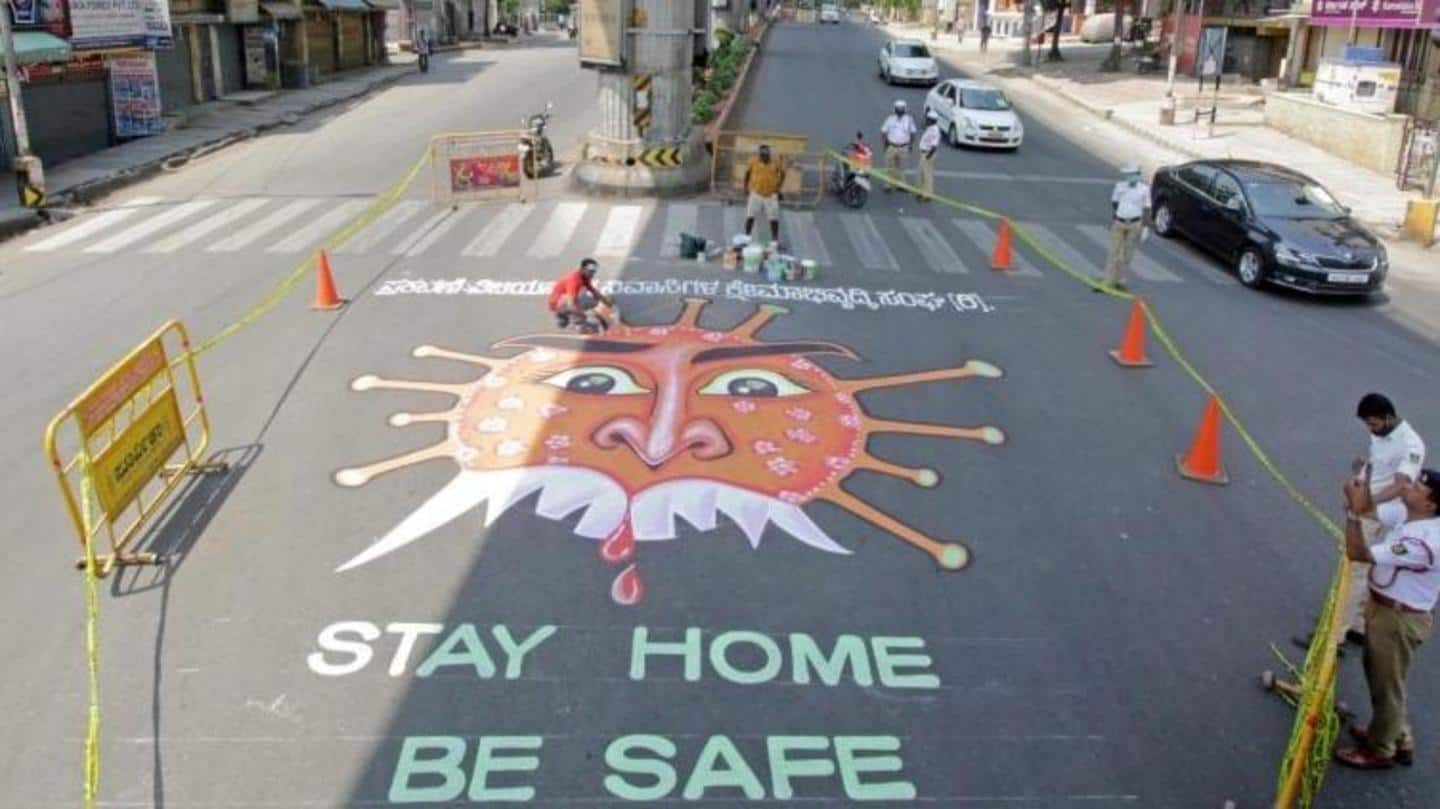
Unlock 2.0 guidelines released: What's allowed and what's not
What's the story
The central government on Monday unveiled guidelines for the second phase of "unlocking" from the coronavirus lockdown, called 'Unlock 2.0'.
In the first phase, set to come to an end after June 30, the government had introduced several relaxations, lifting major lockdown restrictions outside containment zones.
During 'Unlock 2.0', the lockdown will continue to remain in force in containment zones till July 31.
Restrictions
The following activities will remain restricted
The new guidelines, that come into effect from July 1, stated that all activities will be permitted outside containment zones, except those listed as restricted.
The restricted activities include the operations of schools, colleges, and educational institutions till July 31. The Centre encouraged online and distance learning.
International air travel will remain restricted, except as permitted by the Home Ministry.
Restrictions
Metro trains, gyms, theaters, bars, etc. to remain shut
Metro rail, cinema halls, gymnasiums, swimming pools, entertainment parks, theaters, bars, auditoriums, assembly halls, and similar places, will remain shut.
Social, political, sports, entertainment, academic, cultural, religious functions and other large congregations will remain prohibited.
The guidelines stated that the dates for restarting these restricted activities "may be decided separately and necessary SOPs (Standard Operating Procedures) shall be issued."
Relaxations
Domestic flights, trains operations to be expanded
The new guidelines stated that the operations of domestic flights and passenger trains will be further expanded in a calibrated manner.
The night curfew has been relaxed from 9 pm to 5 am during Unlock 1.0 to 10 pm to 5 am during Unlock 2.0. Essential activities are exempted from the curfew. Local authorities have been directed to issue orders to ensure compliance.
Containment zones
Containment zones to remain under lockdown till July 31
The lockdown will continue to remain limited to containment zones, that will be demarcated by district authorities in line with Health Ministry's guidelines. States/UTs may identify buffer zones around containment zones.
Only essential activities will be allowed in containment zones. There shall be no movement of people in or out of these zones, except for medical emergencies and maintaining the supply of essential goods/services.
Quote
Following activities to operate under SOPs previously issued
"Movement by passenger trains and Shramik Special trains; domestic passenger air travel; movement of Indian nationals stranded outside the country and of specified persons to travel abroad; evacuation of foreign nationals; and sign-on/sign-off of Indian seafarers will continue to be regulated as per SOPs issued."
National guidelines
Face masks remain compulsory; large gatherings banned
Face-masks are mandatory in public places/workplaces/transport. Individuals must maintain at least a 6 feet distance in public.
Shops shall now ensure physical distancing among customers. Spitting in public places will be fined.
Large gatherings will continue to remain banned. Up to 50 guests are allowed for marriage gatherings and 20 for funeral/last rites gatherings.
The consumption of liquor/paan/gutka/tobacco is banned in public.
Workplaces
Here are the guidelines for workplaces
Work from home should be followed as much as possible.
Work/business hours in offices, workplaces, shops, markets, and industrial/commercial establishments should be staggered.
Provisions for thermal screening, hand-wash, and sanitizer shall be made available at all entry/exit points and common areas.
Workplaces, common places, and all points that come in human contact shall be frequently sanitized.
Social distancing must be followed at the workplace.
Other details
Vulnerable groups advised to stay home
Workplaces shall continue to ensure that the Aarogya Setu app is installed by all employees having compatible phones on a "best effort basis."
Vulnerable groups such as persons above the age of 65, persons with co-morbidities, pregnant women, and children below the age of 10, are advised to stay at home, except for essential and health purposes.
State/UT governments shall not dilute these guidelines.
Information
'No restriction on interstate/intrastate movement of persons, goods'
Based on their assessment, state/UT governments have been allowed to prohibit certain activities outside of containment zones. However, there shall be no restriction on interstate and intrastate movement of persons and goods including those for cross land-border trade under treaties with neighboring countries.